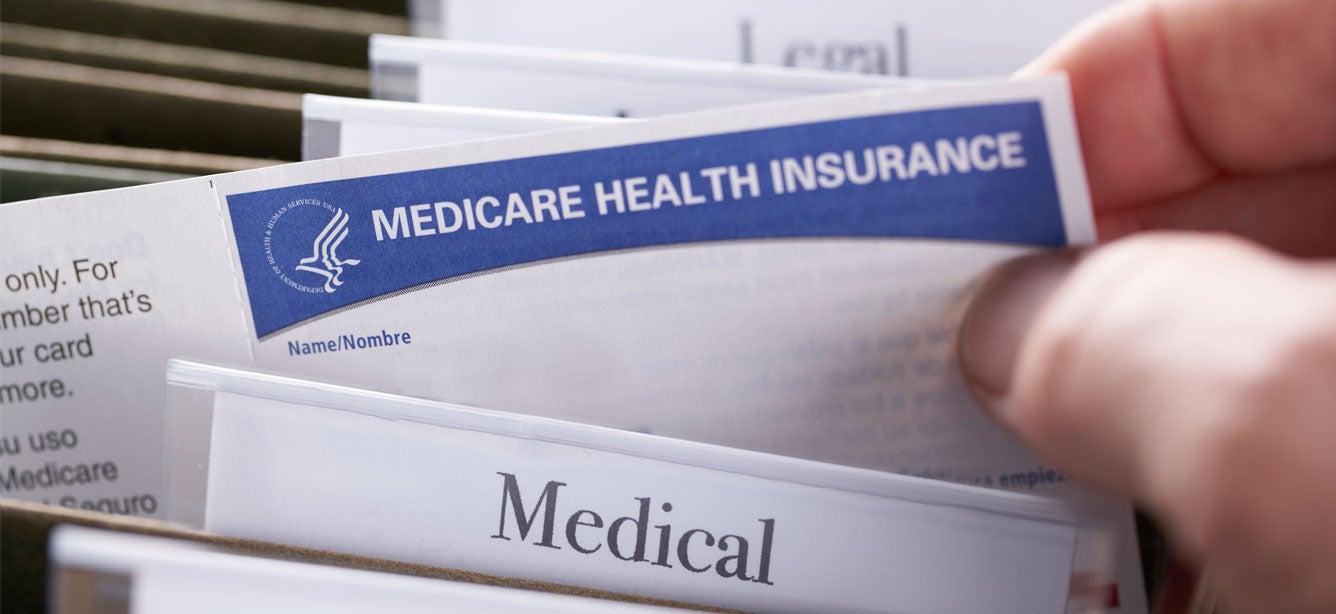
If you have Medicaid through your state’s Marketplace (also known as expansion Medicaid) you will undergo a transition process when you become eligible for Medicare. Understanding the expansion Medicaid to Medicare transition process is important so that you can make the right coverage choices for your situation. This process can differ from state to state and the different outcomes of this process have implications for your health coverage.
What is expansion Medicaid?
Under the Affordable Care Act (ACA), some states expanded Medicaid income limits and the categories of people who can receive Medicaid benefits. You can enroll in expansion Medicaid through your state’s Marketplace, also known as an Exchange.
Expansion Medicaid covers those with incomes below 138% of the federal poverty level (FPL) who are:
- Childless adults ages 19-64
- Pregnant
- Children up to age 19 or 21, depending on the state
- Parent and caretaker relatives
Financial eligibility for expansion Medicaid is determined by your modified adjusted gross income (MAGI) from your tax return and your household size. Resources and assets are not counted. Expansion Medicaid typically does not work with Medicare.
For more information on Expansion Medicaid, you can contact your state’s State Health Insurance Assistance Program (SHIP). To find a SHIP, call 877-839-2675 or visit www.shiphelp.org.
What is traditional Medicaid (also known as ABD Medicaid)?
If you are 65 and older or have certain disabilities, you may have Medicaid for the aged, blind, and disabled, which is known as ABD Medicaid or traditional Medicaid. The income limit for traditional Medicaid is generally 74% of the FPL and there may be an asset limit as well. The income and asset limits can vary from state to state. You can apply for traditional Medicaid at your local Medicaid office.
Traditional Medicaid and Medicare can work together. Traditional Medicaid is a secondary insurance to Medicare, meaning it will pay for remaining cost-sharing (co-pays, deductibles, co-payments) after Medicare pays. Traditional Medicaid can also cover services that Medicare does not cover, such as vision care, dental care and long-term care.
What are Medicare Savings Programs (MSPs)?
Medicare Savings Programs are Medicaid-administered benefits that help pay Medicare costs for beneficiaries with limited incomes. Baseline eligibility is set by the federal government, but different states may have different eligibility requirements. You can contact your local Medicaid office or SHIP for questions about MSP eligibility.
QI, SLMB, and QMB are the three most common MSPs. They all cover the cost of the monthly Part B premium. Additionally, all MSPs automatically enroll an individual in Extra Help, a federal benefit that helps with prescription drug costs.
In addition, QMB pays for Medicare coinsurances and deductibles and provides protections against being billed for Medicare-related costs.
I have expansion Medicaid. What happens when I become Medicare eligible?
If you have expansion Medicaid and become Medicare-eligible, you should enroll into Medicare Parts A and B since Medicare is primary and Medicaid is secondary. You should be re-evaluated for traditional Medicaid and an MSP by your local Medicaid office.
The timing and agency involved in evaluating you for traditional Medicaid and an MSP depends on your state’s rules. You may be evaluated for traditional Medicaid at your expansion Medicaid renewal date, or you may be evaluated for traditional Medicaid as soon as you become Medicare-eligible.
Your state’s marketplace and your local Medicaid office may send you notices about this process around the time you become Medicare eligible. You may need to complete paperwork to be re-evaluated for traditional Medicaid and the MSP. You may also be able to receive state reimbursement for your Part B premiums while you are being re-valuated, but rules for this may differ from state to state.
NOTE: During the COVID-19 Public Health Emergency, states may have changed the way that individuals transition from expansion Medicaid to Medicare, including suspending re-evaluations for traditional Medicaid. You should contact your state’s Marketplace or SHIP to find out about any changes during the COVID-19 Public Health Emergency. To find a SHIP, call 877-839-2675 or visit www.shiphelp.org.
What can happen to my coverage as a result of this re-evaluation?
Depending on your income and/or assets, when you are re-evaluated for traditional Medicaid and an MSP, you may be eligible for both, just an MSP, or neither. Listed below are descriptions of the different outcomes of evaluation:
1. Transition from expansion Medicaid to Medicare with traditional Medicaid and a Medicare Savings Program (MSP)
- Medicare will be your primary insurance and Medicaid will be secondary
- You should see providers that accept both Medicare and Medicaid in order to have most coverage
- MSP will pay for your monthly Part B premium
- You will be automatically enrolled in Extra Help, the federal program that helps with Part D prescription drug costs
2. Transition from expansion Medicaid to Medicare with an MSP and without traditional Medicaid
- Medicare may be your only health insurance
- You may want to consider enrolling in a Medicare Advantage plan or Medigap plan to cover cost-sharing or services not covered by Medicare
- MSP will pay for your monthly Part B premium
- You will be automatically enrolled in Extra Help, the federal program that helps with Part D prescription drug costs
3. Transition from expansion Medicaid to Medicare without traditional Medicaid or an MSP
- Medicare may be your only health insurance
- You will be responsible for all Medicare cost-sharing unless enrolled in supplemental insurance
- You are responsible for paying Part B premium
- You may be able to independently enroll in Extra Help through Social Security
In some circumstances, you may be able to receive Medicare and stay in Expansion Medicaid. Typically, this is only available if you are a parent/relative caretaker. You will be reimbursed for the Part B premium by your state.
In summary, if you have expansion Medicaid you will need to be re-evaluated for traditional Medicaid and a Medicare Savings Program (MSP) when you become Medicare eligible. Contact your state’s marketplace and/or your local Medicaid office if you have questions about this process and be on the look out for mailings from them with paperwork you may need to fill out. Start thinking about this transition early and don’t be afraid to seek personal counseling from a SHIP counselor.



